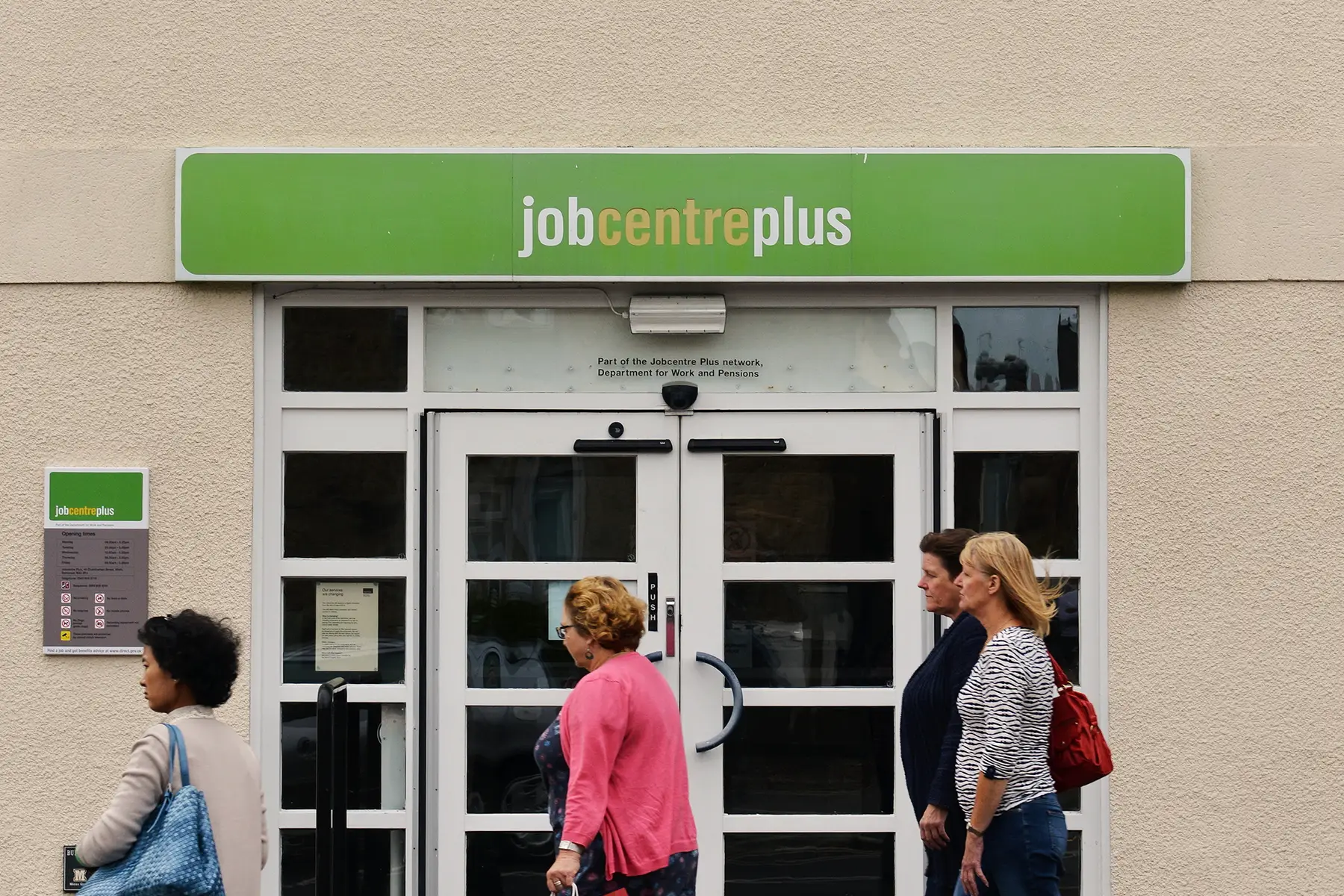The cost of living in the UK is high compared to other countries, although in many cases, higher salaries can offer a comfortable lifestyle for some expats. Prices vary across the country – in London, for example, the cost of living can be far higher than in the rest of the country, particularly when compared to the North, Wales, Scotland, and Northern Ireland.
This article covers the following:
CurrencyFair
If you’re moving money abroad, check out CurrencyFair. This well-known peer-to-peer currency exchange platform provides competitive rates, low fees, and transparent transactions. Experience efficient, cost-effective international transfers by joining CurrencyFair today.
Is the UK’s economy good?
The UK economy is growing slowly and its GDP is expected to rise by around 1.5% in 2025. Employment rates remain high, though wage growth continues to lag behind living costs in some sectors, maintaining pressure on household budgets.
The country benefits from its robust financial services sector, a strong export market in advanced manufacturing, and growing investments in renewable energy and technology. However, challenges such as rising housing costs and regional economic disparities persist, requiring ongoing policy focus to ensure inclusive and sustainable growth.
Inflation and disposable income
Inflation remains a concern among British residents, and, while it’s slowed in recent years, it is projected to increase again in 2025.
In 2025, the UK’s real household disposable income per capita is projected to experience modest growth. According to the Office for National Statistics, the real household disposable income per head, adjusted for inflation, is expected to reach £21,000, reflecting a 1.5% increase from the previous year.

Despite this growth, the Resolution Foundation anticipates that living standards may stagnate or decline for certain demographics. The foundation’s analysis suggests that the poorest 10% of working-age individuals could see a 2% reduction in disposable income, primarily due to rising housing costs and adjustments in social security benefits.
In 2024, about 21% of the UK’s population lived in poverty, with housing costs included. Poverty rates are highest among families from Pakistani and Bangladeshi backgrounds, unemployed people, and social renters. In addition, the poverty rate is higher among families with a member with a disability.
The UK compared to its neighbors
The UK is an economic heavyweight in Northern Europe, with a score of 70.5 on Numbeo’s Cost of Living Index as of 2025. In comparison, neighboring countries like France (65.3) and Ireland (62.8) rank slightly lower, while Germany sits at 61.6.
Although many of its European neighbors boast lower living costs, the UK’s higher expenses are driven by factors such as London’s role as a global financial center, higher housing prices, and more demand for services. This economic prominence contributes to the UK’s reputation as one of the pricier places to live in the region.
The cost of living in the UK in 2025
The average household spends £567.70 per week in the UK (latest 2022–2023 data), inclusive of housing, food, transport, and bills. Housing is the largest expenditure, with transport coming in second. The UK’s average household weekly spend is comparable to other Western European countries, such as Germany.
The price of groceries in the UK in 2025
The UK has a string of supermarket chains that can be affordable if you shop in the right places. Lidl and Aldi stock a variety of quality products at reasonably low prices for budget shoppers. Mid-range supermarkets include Tesco, Asda, Morrisons, and Sainsbury, while Waitrose and M&S cater towards the higher end of the market.
As of September 2024, UK grocery inflation was falling and consumers were seeing much lower prices at the supermarket. However, research showed that Brits were still concerned about the cost of groceries increasing again.

Senior Editor
Sarah Fairman
Insider Tip
Most UK supermarkets offer free membership cards that can help you save on groceries through discounts, personalized offers, and reward points. These cards are a useful way to cut costs if you don’t mind retailers being aware of your shopping habits. Because there is a trade-off: you usually have to provide personal information (e.g., email address), and supermarkets can track your previous purchases.
The average household shopping bill in the UK is about £62 per week, or 10.6% of total expenditure. Here are some of the average costs for products in the UK:
- 1l of milk: £1.01
- A loaf of white bread: £1.04
- 1kg rice: £1.39
- Eggs (carton of 12): £2.12
- 1kg local cheese: £5.91
Beer, wine, and liquor
If you’re partying at home, a mid-range bottle of wine in a supermarket in Britain costs £8–12, and a bottle of beer about £2. You can get a 1L bottle of a popular brand of liquor (e.g., Captain Morgan, Smirnoff, Jim Beam) for about £25.
2025 housing costs in the UK
Rent and property prices
London has the highest renting costs in the UK. Renting a one-bedroom city center flat in the capital costs £1,750–3,000 a month. This goes up to £3,500–6,500 for a three-bedroom home.

Meanwhile, in a northern city such as Sheffield, prices are dramatically lower: £750–950 for a one-bedroom city center apartment. Some rentals include utility bills in the contract, while others have these as an extra cost.
If you are looking for a short-term or furnished place to rent in the UK, check out the following sites:
The UK housing market has been relatively consistent in recent years, despite the country’s exit from the European Union.
In London, the average cost to buy a house or apartment was £706,159 in 2024. That’s significantly more expensive than the South East of England (£468,712), the East of England (£394,734), and the East Midlands (£262,805).
Utility bills
The privatization of energy companies in the UK means you can expect utility costs to increase year-on-year. As a result, energy bills in the UK are some of the highest in Europe and increased dramatically in 2024.
The average UK household pays £671.22 per year for electricity in 2025 (without factoring in the annual electricity standing charge). For gas, the average annual bill is £729.10 (minus the standing charge).
The cost of UK healthcare
Residents in the UK have access to free medical care under the National Health Service (NHS) and the average person in the UK only spends around £500 per year on healthcare. The NHS covers doctor’s appointments and some hospital treatments, although most prescriptions carry a charge. In order to qualify for UK healthcare, expats must register for an NHS number.

One of the first healthcare costs you’ll likely incur in the UK is the immigration health surcharge (IHS), which you must pay as part of your online visa application before actually moving. This will allow you to use the NHS free of charge from the day you start living in the UK. The IHS varies depending on how long your stay would be.
Particularly with dental care, expats living in the UK often choose to take out private health insurance to get access to higher quality care, lower treatment costs, and faster service.
Internet and telecom prices in the UK
In terms of home entertainment, broadband, telephone, and satellite TV costs can often be bundled into one expense if you buy a package from Sky or BT. Expect to pay somewhere in the region of £25–45 a month for a high-speed broadband package.
Mobile phone monthly plans that include calls and data run about £12–30 per month depending on how much data you need.
The price of transportation in the UK
Public transport
Public transportation in the UK can be affordable and relatively easy to use as long as you do your research and plan in advance. As with utilities, the privatization of transport companies pushes up ticket prices, and timetables don’t always align between services.
In smaller UK towns and cities, buses are the only public transport and cost a minimum of £1.80. The cost varies depending on the city and the distance you are traveling.
The UK also has an extensive rail network. When traveling intercity, it’s a good idea to book tickets a few weeks in advance, as last-minute tickets fetch high prices. For example, a ticket from Leeds to London costs £60–80 if you buy it on the day, but as little as £30 if you buy it in advance.
If you’re making one-off journeys and know your travel dates, booking two or three weeks in advance using apps and websites such as Trainline can save you an average of 61% per journey. You can also save money by splitting your ticket with a website such as Split Ticketing.

Those living in London should invest in an Oyster card, which provides access to buses and metro for slightly cheaper rates. A single fare with an Oyster Card is £1.75 on the bus and a minimum of £2.70 on the underground. Some fares are capped, meaning that there is a maximum you can spend on your Oyster card per day.
Driving costs and gas prices
Taxi fares are quite expensive in the UK, with Uber and other rideshares being slightly more affordable. Black cabs are readily available, but the starting fare is around £3 and costs escalate quickly on longer journeys. Before traveling by taxi in the UK, estimate the cab fare with an online price finder.
Owning a car is also expensive in the UK due to relatively high fuel costs. The average price per liter in the UK was £1.34 at the start of 2025. Meanwhile, you can buy a Volkswagen Golf for about £28,000 and a Toyota Corolla Sedan for about £25,000, which is around the same as other European countries.
The costs of UK education and childcare
Childcare
If you’re a working parent with young children, you need to find childcare for the little ones.
Across the UK overall, you can expect to pay around £1,200 per month for private preschool for one child. However, there are no-cost options available to parents as well.

From 9 months to 2 years old, you can get 15 hours per week of free childcare in England, and from 3 to 4 years old, you can get 30 hours per week of free childcare.
In Scotland, the allowance is 1,140 hours per year. Different rules apply in Wales and Northern Ireland. Many nurseries allow you to pay for extra hours.
If you choose to hire an au pair for your children, there are several rules to take into account. For example, you must also pay them a reasonable amount of pocket money – gov.uk suggests at least £90 per week.
Children’s education
Expats residing in the UK are eligible to send their children to state schools in England free of charge. The only costs are for uniforms, dinners, and extra-curricular books that are not offered by the UK education system.
Children are obligated to attend school from the age of five to the age of 16, and to stay in education until 18. Many young people follow an apprenticeship, vocational qualifications, or A-levels required to qualify for university places.
Some expats choose to send their children to international schools to follow the curriculum of their home country. Tuition fees vary – for an idea of cost, the International School of London charges £22,000–33,000 per year for tuition, based on grade level.
University education
Home to some of the world’s most prestigious universities, the UK is an expensive place to study, especially for international students. The current average yearly tuition fees for international students range from £11,400–38,000 for undergraduates and £9,000–30,000 for postgraduates.

The cost of leisure activities and going out in the UK
Fitness
If you like to work out, you can get a fitness club membership while living in the UK for about £28–90 per month. For this monthly price you can expect access to both weight lifting equipment and cardio exercise machines like treadmills and ellipticals, or cross-trainers. On the other hand, if the world is your gym, a pair of running shoes will set you back around £90.
Restaurants and bars
The major cities in the UK have a wide choice of restaurants, cafés, and pubs that serve food. Eating in a café, pub, or fast food restaurant is generally the cheapest option. However, this varies greatly between cities. For example, UK pub chain Wetherspoons offers its traditional English breakfast for under £6 in Leeds, but the same costs closer to £9 in London or Brighton.
In general, two people should be able to eat out at a good quality restaurant in the UK for about £45–100 total. An inexpensive restaurant will be closer to £15 per person, while a combo meal at a fast food chain costs about £7.
If you don’t have time to sit down at a restaurant, the UK has plenty of options for ready meals. Supermarkets and shops offer meal deals for around £3–5 where you get a sandwich or wrap, chips, and a drink. Or if you’re craving something hot and savory, the nationwide chain Greggs also sells meal deals for £3–5.
You’ll pay around £4 for a pint of beer out at a bar or pub most places around the UK, but closer to £6 at pricey bars in London or Manchester. A glass of wine costs £5–6, depending heavily on the type of wine and quality. Mixed drinks and cocktails are the most expensive in the UK and cost between £6–15 depending on the city and bar.

Entertainment
There are plenty of entertainment options in the UK for those who like sports events, movies, or concerts.
Movie theater tickets are generally around £10–12 anywhere in the UK, except London, Brighton, or Manchester where they’re around £15–16. Independent cinemas sometimes sell tickets at cheaper prices.
Professional football is extremely popular in the UK, and tickets run between £50 and £500, depending on the which teams are playing. You might also be interested in catching a rugby or cricket match, both of which are popular sports but definitely cheaper to see than football.

Senior Editor
Sarah Fairman
Insider Tip
For entertainment on a budget, check out websites such as MoneySavingExpert. They regularly highlight deals on outings, cinema tickets, streaming services, free events around the UK, and more. Furthermore, their website provides ways to save on essentials, including groceries, energy, and phone bills, so you can free up more of your budget for fun activities.
The UK is home to some of the most iconic concert venues in the world, including Royal Albert Hall, The O2 Arena, Wembley Stadium, and Roundhouse. Depending on who you want to see, tickets will set you back anywhere from £20 to £300.
But remember that the UK’s music scene is so diverse, you can find something for almost any budget if you check local venues, like up-and-coming artists playing smaller gigs or bars with free DJ nights.
How does the UK compare to the rest of the world?
Of course the largest cities in the UK are also typically the most expensive to live in, with London having by far the highest cost of living in Britain. Some of the UK’s most-populous cities compared to other cities worldwide are as follows:
The cost of living in London, England
- 24% cheaper than New York (US)
- 21% more expensive than Amsterdam (Netherlands)
- 111% more expensive than Warsaw (Poland)
- 154% more expensive than Istanbul (Türkiye)
- 371% more expensive than Delhi (India)
- 420% more expensive than Karachi (Pakistan)
The cost of living in Manchester, England
- 49% cheaper than New York (US)
- 19% cheaper than Amsterdam (Netherlands)
- 41% more expensive than Warsaw (Poland)
- 70% more expensive than Istanbul (Türkiye)
- 216% more expensive than Delhi (India)
- 245% more expensive than Karachi (Pakistan)
The cost of living in Birmingham, England
- 53% cheaper than New York (US)
- 26% cheaper than Amsterdam (Netherlands)
- 29% more expensive than Warsaw (Poland)
- 55% more expensive than Istanbul (Türkiye)
- 188% more expensive than Delhi (India)
- 215% more expensive than Karachi (Pakistan)
The cost of living in Glasgow, Scotland
- 51% cheaper than New York (US)
- 22% cheaper than Amsterdam (Netherlands)
- 37% more expensive than Warsaw (Poland)
- 64% more expensive than Istanbul (Türkiye)
- 205% more expensive than Delhi (India)
- 235% more expensive than Karachi (Pakistan)
The cost of living in Belfast, Northern Ireland
- 46% cheaper than New York (US)
- 19% cheaper than Amsterdam (Netherlands)
- 28% more expensive than Warsaw (Poland)
- 35% more expensive than Istanbul (Türkiye)
- 145% more expensive than Delhi (India)
- 170% more expensive than Karachi (Pakistan)
The cost of living in Cardiff, Wales
- 45% cheaper than New York (US)
- 17% cheaper than Amsterdam (Netherlands)
- 31% more expensive than Warsaw (Poland)
- 38% more expensive than Istanbul (Türkiye)
- 151% more expensive than Delhi (India)
- 180% more expensive than Karachi (Pakistan)
Assistance with living costs in the UK
Help is available for people struggling with living costs. The benefit system can be complicated, but the following is available:
- Carer’s Allowance: £81.90 per week if caring for someone more than 35 hours a week.
- Child Benefit: £25.60 per week for your eldest child, £16.95 for each additional child
- Personal Independence Payment: £28.70–108.55 for mobility and living costs for those with a long-term physical or mental health condition or disability.
- Employment and Support Allowance: up to £138.20 per week if you have a disability of health condition that affects how much you can work.
- Universal Credit: £311.68–617.60 per month depending on your age and status. This payment is supposed to help with living costs for those on a low income or out of work.
- Jobseeker’s Allowance: up to £90.50 for those out of work. Several conditions apply.

UK residents are normally eligible for benefits providing they have lived in the country for long enough. Some benefits require that you have settled status if you arrived from the EU before Brexit. Make sure you read the terms and conditions of each benefit carefully, as the British welfare system can be strict.
Useful resources
- UK Office for National Statistics – For more information on economic indicators such as consumer inflation and tax news
- Gov.uk – For information on processes when living in or moving to the UK
- Transport for London – For the latest on getting around London









